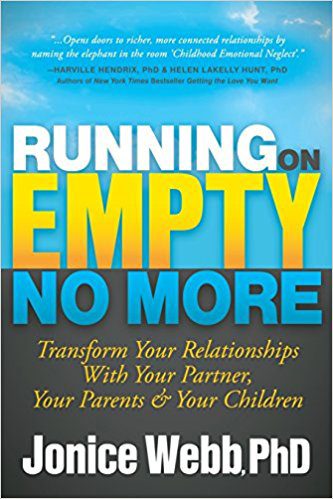How To Talk To Your Partner About Childhood Emotional Neglect
When you bring up childhood emotional neglect to your partner, it’s the opposite of rejection. Instead, it’s an invitation to come closer.

Two examples of how childhood emotional neglect can affect relationships
Sometimes in adult relationships, we don’t see how childhood emotional neglect (CEN) can be the issue for intimacy and friendship with our partners.
Childhood Emotional Neglect is a parent’s failure to respond enough to a child’s emotional needs. It’s a failure to notice, attend to, or respond appropriately to a child’s feelings. Because it’s an act of omission, it’s not visible, noticeable or memorable. It is insidious and overlooked while it does its silent damage to people’s lives.
Marcel and May
When Marcel first realized that he was unhappy in his marriage, it was only the beginning of the problem. As he became more and more unhappy, he gradually realized that he needed to try harder to talk to May about it. He didn’t know why, but he sensed a giant wall that he would need to scale to get through to May. (These are signs that a marriage may be headed for divorce.)
Weeks went by, months, and then several years. Marcel went back and forth between feeling deeply unhappy in his marriage, and feeling like he must be crazy. After all, there were so many great things about his relationship. He loved his wife deeply, and often enjoyed spending time with her. Their family vacations, Saturday afternoon bike rides, and their quiet evenings after the children were in bed all felt satisfying in very important ways.
May was a kind and loving mother to their children and a successful attorney. Marcel often wondered how he could dare ask for more. Each time he considered speaking with her about his unhappiness, he felt bad and doubted himself. He would remind himself of May’s positive traits, and resolve to focus on those instead of this vague feeling of dissatisfaction that dogged him…
Olive and Oscar
After years of marriage, something unexpected happened. Oscar was told by his doctor that he had kidney cancer. As he went through the frightening steps of testing and diagnosis, he felt Olive’s presence at his side every step of the way. Strangely, though, he also felt that Olive wasn’t there for him. He found himself urgently needing to call his sister Britt after each medical appointment to report what happened, what the doctor said, and the next steps. Somehow, talking with Britt helped him feel better in a way that talking with Olive did not.
Oscar had no idea why talking with Britt helped him so much more. To him, it seemed that Olive was doing all the right things. She gave him constant reassurance that he would be fine, and that everything would be okay. Britt, on the other hand, cried when he told her his diagnosis. During their conversations she shared her feelings with him, and went through the doctor’s comments in a realistic way, thinking through the possibilities with him, both positive and negative. She noticed Oscar’s tone of voice, and asked him how he felt about various developments. When, after his surgery, Oscar received the news that he was cancer-free and would not need chemo, Britt, not his wife, was the first person he wanted to tell. (What are the subtle signs of infidelity?)
Months past the cancer episode, Oscar remained confused by his feelings (because they made no sense to him). Somehow he felt that Olive had let him down when he needed her the most. He felt guilty for feeling this way since she had been by his side through the entire ordeal.
“What is going on here? What has gone wrong? How can I feel this way about Olive, who I know loves me?” he often wondered. Held back by his guilt and confusion, it would take Oscar some time to finally ask Olive to go to couples counseling with him.
How do you share your experience with childhood emotional neglect and your partner
There’s nothing quite like finding yourself married to someone with childhood emotional neglect. It’s hard to believe your own perception that something is wrong in the relationship. You know that something is missing, but you’re not sure what it is. You may like and love your spouse, but you feel distant from him. You want, more than anything, to feel something that you can’t quite name. You may appear to be happily married, and in many ways, you are. And yet you feel lost at sea.
There are many possible ways to find yourself needing to talk with your partner about CEN. It may be that you have realized that you have emotionally neglected your spouse. It may be that you suspect that your spouse has CEN, and you’d like to approach her about it. It may be that you have realized that you both likely have CEN, and you want to explore this question with your partner.
I understand the load you are carrying right now, and how much trepidation you might be feeling about talking with your partner about such an emotionally challenging topic as CEN. So I’m going to give you as much direction and support as possible. We will take this one step at a time.
Our first step will be to get you strong, confident, and ready to tackle this.
Excerpted from Running on Empty No More: Transform Your Relationships With Your Partner, Your Parents and Your Children Paperback (November 7, 2017), by Jonice Webb, PhD.




